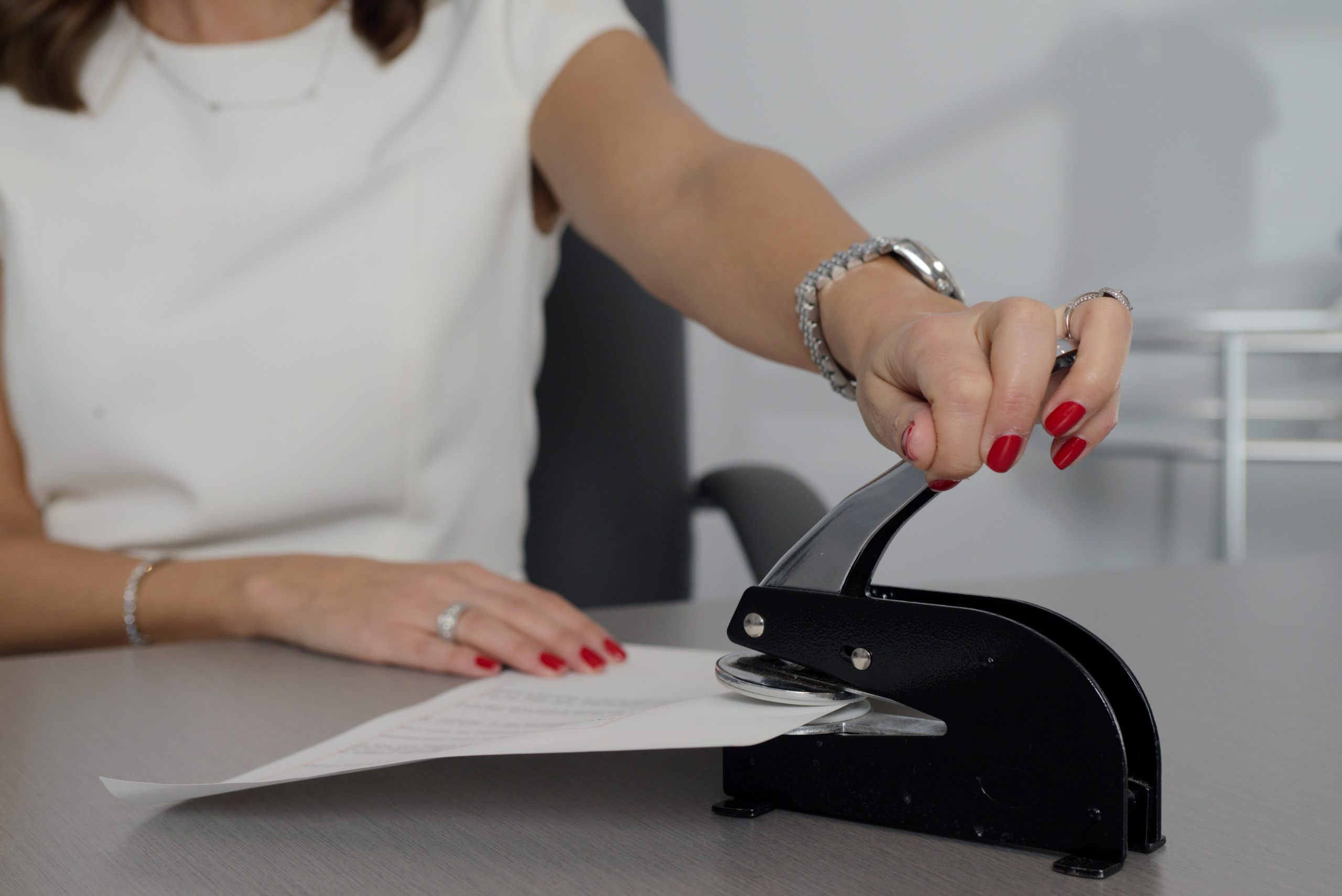Hi there! You’ve likely stumbled upon this article because you’ve been told by a foreign jurisdiction that you need to have a document “apostilled”. If that’s you, you’ve come to the right place. In this blog article we will discuss the main differences between Authentication, Legalization and how that translates into Apostilled. It should also be noted that the information in this blog are British Columbia specific and do not translate out into other Provinces within Canada.
I’ll start you off with some legal jargon and what those words translate to:
“Authentication” or “Authenticated” means the process in which we are required to forward an originally signed document to the Order In Counsel of British Columbia to have an approved lawyer’s signature verified.
“Legalization” means the process in which an authenticated document is processed by the Consulate for the foreign jurisdiction where it is intended to be used.
“Apostilled” means the finished product or document which has gone through all necessary steps to be considered valid and usable in its home jurisdiction.
“Foreign Jurisdiction” means the country in which the document has been prepared and is intended to be used.
I’ll run through an example to illustrate a typical scenario where this process comes into play.
Example:
A person(s) wishes to purchase a property in Mexico but does not/cannot travel to Mexico to sign the papers in person and wishes to grant a power of attorney to their Mexican lawyer to sign documentation on their behalf. In this scenario, the person(s) have retained a Mexican lawyer, who prepares a power of attorney. This power of attorney needs to be witnessed by a lawyer in British Columbia as that is where the person(s) currently reside. The prepared power of attorney is signed by the person(s) in the presence of an approved lawyer, then couriered by the lawyer to the Order in Counsel of British Columbia with the fee. Once the document is authenticated by the Order in Counsel of British Columbia, it is returned to the BC lawyer’s office. From here, the power of attorney is now couriered to the Mexican Consulate with the appropriate paperwork and fee to the legalized. Once this is completed, it is returned to the BC lawyer’s office and is now considered ready for use in Mexico.
This example is fairly consistent for all countries, with one big exception – each country and Consulate has different requirements for their legalization process. At the time this is written, Mexico’s Consulate processes are fairly simple and only require a fee and a letter from us with our request and instructions for return of the documentation. Other countries such as India have an additional form to fill out which requires a photograph of the person(s), information about their families and a fee.
This process is not always cut and dry and there are some things we cannot do or help you with through our office, namely:
- We cannot give you legal advice regarding the documentation as we are not licenced or insured to provide advice for foreign jurisdictions. Any questions or advice you require about the document you are wishing to sign must be discussed with the authority of the foreign jurisdiction that is requesting it or preparing it on your behalf.
- We cannot translate the document from whichever language it has been prepared in. This too should be discussed with the authority from the foreign jurisdiction in advance of signing.
- We cannot create documents for foreign jurisdictions. If we are to create a document for a specific scenario (ex. confirming BC identification was witnessed or a statutory declaration regarding facts) we cannot guarantee it will be valid and would only be completed at the express request of the client.
- We cannot confirm the validity of foreign jurisdiction identification (ex. a birth certificate from the UK or a drivers licence from Poland). These pieces of identification can only be validated in their country of origin.
- It should be noted that our office does not practice in the area of immigration law. If a person’s intent is to immigrate to Canada, we will not be able to assist you but will be able to provide you with a referral to some immigration lawyers who can walk you through those processes.
You might be asking yourself why this process is so long and tedious. The short answer is that Canada is not a party to the 1980 Hague Convention Treaty which allows member countries to skip the authentication and legalization steps to have a document apostilled. As at the date this is written, we are not aware of Canada’s want to become a member of this treaty, so for the time being any documents being sworn in Canada are required to go through that Province’s and Country’s authentication and legalization processes.
As always, this is not an exhaustive list of scenarios. If you have a specific request or questions about the information in this blog post, please feel free to reach out to our office directly and we’d be happy to speak with you regarding your needs.
Author: Tracy Lerfold, Designated Paralegal to Jennette Vopicka and Danielle (Dani) Brito
This information is general in nature only and written by a Designated Paralegal under the direct supervision of a lawyer. You should consult a lawyer before acting on any of this information. This information should not be considered as legal advice. To learn more about your legal needs, please contact our office at (778) 940-3768 or any of our lawyers practicing in the area of authentication and legalization at the following:
Jennette Vopicka: jennette@acornlaw.ca
Danielle (Dani) Brito: dani@acornlaw.ca



